
Copernical Team
Milky Way found to be more unique than previously thought
 Is the Milky Way special, or, at least, is it in a special place in the Universe? An international team of astronomers has found that the answer to that question is yes, in a way not previously appreciated. A new study shows that the Milky Way is too big for its "cosmological wall", something yet to be seen in other galaxies. The new research is published in Monthly Notices of the Royal Astronom
Is the Milky Way special, or, at least, is it in a special place in the Universe? An international team of astronomers has found that the answer to that question is yes, in a way not previously appreciated. A new study shows that the Milky Way is too big for its "cosmological wall", something yet to be seen in other galaxies. The new research is published in Monthly Notices of the Royal Astronom Our Solar System is filled with asteroids that are particularly hard to destroy
 A vast amount of rocks and other material are hurtling around our Solar System as asteroids and comets. If one of these came towards us, could we successfully prevent the collision between an asteroid and Earth?
Well, maybe. But there appears to be one type of asteroid that might be particularly hard to destroy.
Asteroids are chunks of rocky debris in space, remnants of a more violen
A vast amount of rocks and other material are hurtling around our Solar System as asteroids and comets. If one of these came towards us, could we successfully prevent the collision between an asteroid and Earth?
Well, maybe. But there appears to be one type of asteroid that might be particularly hard to destroy.
Asteroids are chunks of rocky debris in space, remnants of a more violen ESA DG’s annual press briefing 2023
 Video:
01:06:46
Video:
01:06:46
Watch a replay of our start-of-the-year press briefing looking ahead at 2023, with ESA Director General Josef Aschbacher and ESA Directors. They presented the next steps of Agenda 2025, looking at new missions, science, space safety and commercialisation of space.
Juice launch (artist’s impression)
 Image:
Juice launch (artist’s impression)
Image:
Juice launch (artist’s impression) Galileo tribute plaque unveiled on the Jupiter Icy Moons Explorer, Juice
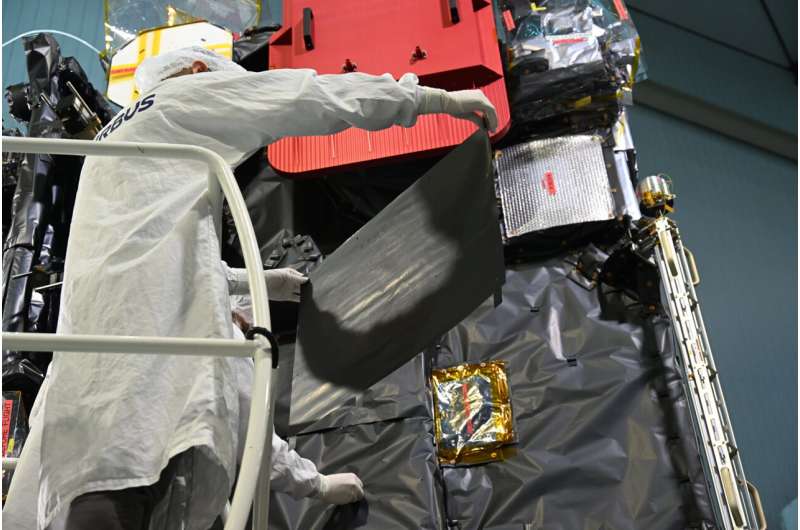
A new way to peer into the permanently shadowed craters on the moon, searching for deposits of water ice
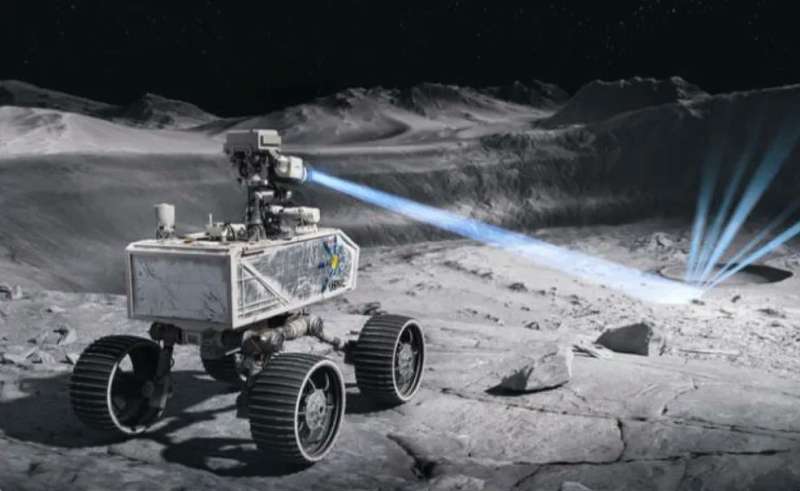
Not all flashlights are created equal. Some are stronger, consume more power, or have features such as blinking or strobes. Some aren't even meant for humans, such as a new project that recently received funding from a NASA Institute for Advanced Concepts (NIAC) Phase I award. Designed by the Ultra Safe Nuclear Corporation (USNC), this flashlight doesn't emit visible light, but it does emit X-rays and gamma rays, and the researchers on the project think it could be useful for finding resources on the moon.
The key to this technology is a novel radioisotope that USNC developed that goes by the trade name EmberCore. It is a type of nuclear chargeable ceramic, similar to the radioisotopes contained in the radioisotope thermal generators used by Mars rovers such as Curiosity and Perseverance.
Webb unveils dark side of pre-stellar ice chemistry
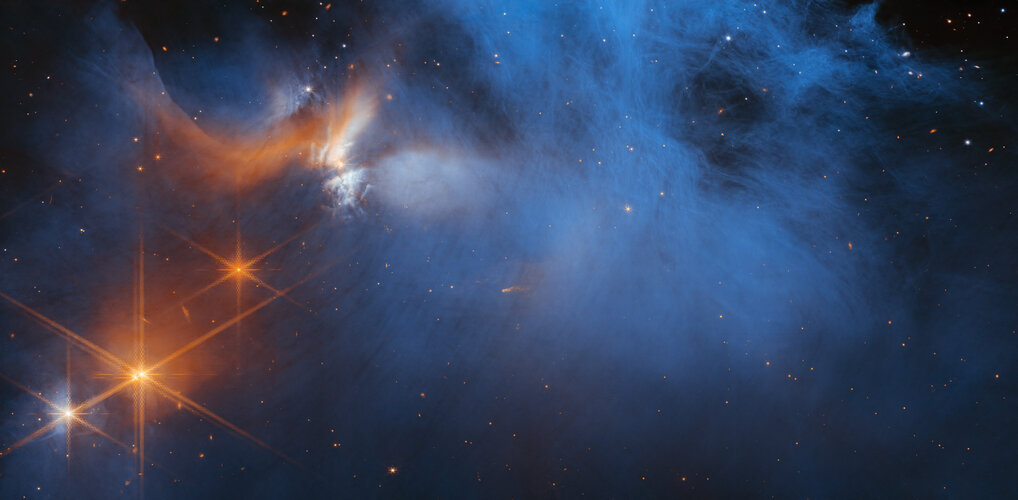
The discovery of diverse ices in the darkest, coldest regions of a molecular cloud measured to date has been announced by an international team of astronomers using the NASA/ESA/CSA James Webb Space Telescope. This result allows astronomers to examine the simple icy molecules that will be incorporated into future exoplanets, while opening a new window on the origin of more complex molecules that are the first step in the creation of the building blocks of life.
Mapping the Moon
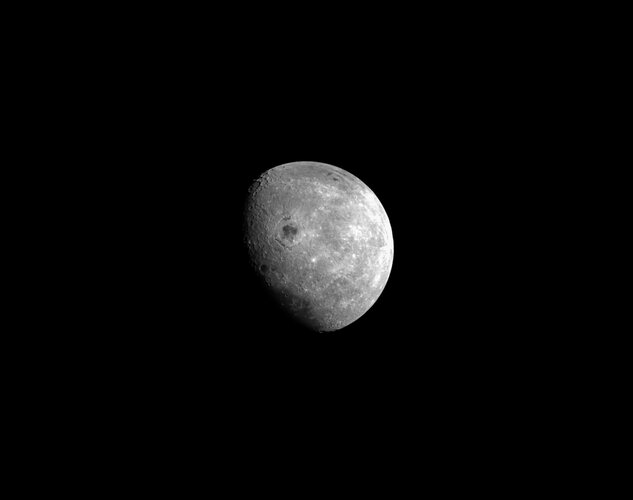
A paper published in December 2022 has analysed the rocky features of the lunar South Pole and identifies possible areas of interest for astronauts to explore and gather the best samples on the Artemis III mission.
ESA to help develop secure quantum communications
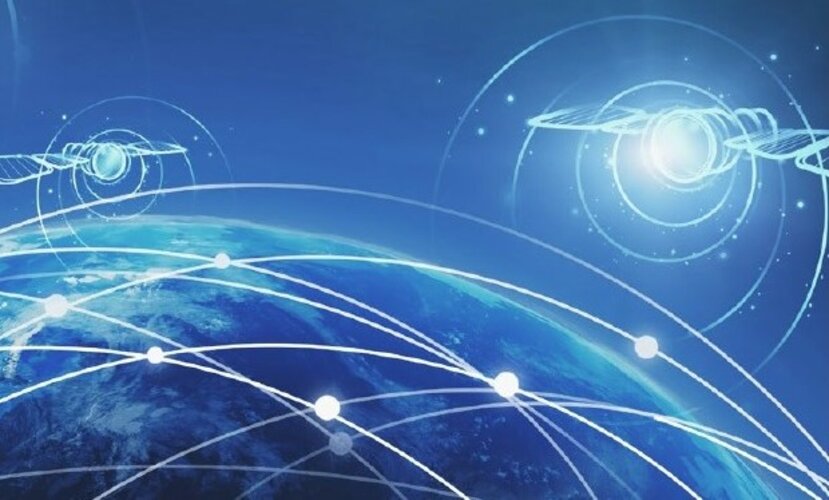
Staying safe from cyberattacks that target vital services such as power supplies is increasingly important in today’s digital world. ESA is supporting European autonomy to keep people connected by working with satellite manufacturer Thales Alenia Space to develop highly secure technologies based on the unbreakable laws of quantum physics.
AIR launches high-resolution sensing and electrical stimulation neural activity study
 A major interdisciplinary project "Research on high-resolution sensing and electrical stimulation of sleep-wake neural electrical activity", led by Prof. CAI Xinxia from the Aerospace Information Research Institute (AIR), Chinese Academy of Sciences (CAS), in collaboration with Fudan University, Zhejiang University and Ruijin Hospital, has been approved by the National Natural Science Foundation
A major interdisciplinary project "Research on high-resolution sensing and electrical stimulation of sleep-wake neural electrical activity", led by Prof. CAI Xinxia from the Aerospace Information Research Institute (AIR), Chinese Academy of Sciences (CAS), in collaboration with Fudan University, Zhejiang University and Ruijin Hospital, has been approved by the National Natural Science Foundation 
